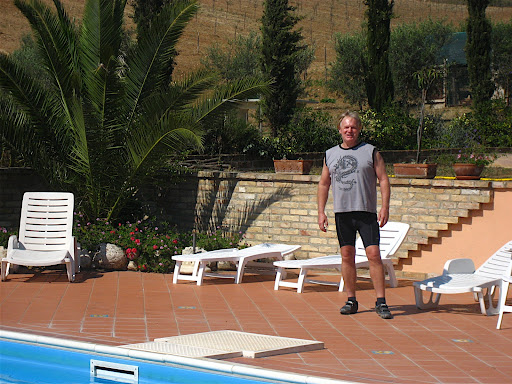

The History of vacation tourism.
The words "tourist" and "tourism" were first used as official terms in 1937 by the League of Nations to, define people travelling abroad for periods of over 24 hrs. But the tourism industry is much older than that. Basically, "tourism", like any other form of economic activity, occurs when the essential parameters come together to make it happen. In this case there are three essential parameters: a) Disposable income, i.e. money, to spend on non-essentials b) Time in which to do so. c) Infrastructure in the form of accommodation facilities and means of transport.
The word "tour" gained common acceptance in the eighteenth century, when the "Grand Tour" of Europe became part of the upbringing of the educated and wealthy British nobleman or cultured gentleman. Grand tours were taken in particular by young people to complete their education. They travelled all over Europe, but notably to places of cultural and aesthetic interest, such as Rome and the Alps. Most major British artists of the eighteenth century did the Grand tour, as did their great European contemporaries such as Claude Lorrain. Classical literature and art had always drawn visitors to Rome, Naples. The Romantic movement (inspired throughout Europe by the English poets William Blake and Lord Byron, among others), extended this to "gothick" countryside, the Alps, fast flowing rivers, mountain gorges, etc.
The British Aristocracy were particularly keen on the Grand Tour, using the occasion to gather art treasures from all over Europe to add to their collections. The volume of art treasures going to Britain in this way was unequalled anywhere else in Europe, and explains the richness of many private collections and public collections in Britain today. Yet tourism in those days, aimed essentially at the very top of the social ladder and at the well educated, was fundamentally a cultural activity. These first tourists, though undertaking their "Grand Tour", were more "travellers" than "tourists". Tourism in the modern sense of the word did not develop until the nineteenth century; that was leisure travel, which today forms the larger part of the tourist industry.
Again the leisure industry was a British invention, for sociological reasons. Britain was the first European country to industrialize, and the industrial society was the first society to offer time for leisure to a growing number of people. Not the working masses in the first place, but the owners of the machinery of production, the economic oligarchy, the factory owners, the traders, the new middle class.
Leisure travel had of course developed as an offshoot of cultural tourism, partly as "health" tourism. Some English travellers, after visiting the warm lands of the South of Europe, decided to stay there either for the cold season or for the rest of their lives, but this was a very minor development. It was not until the nineteenth century that leisure tourism really began to develop, as people began to "winter" in warmer climates, or to visit places with health-giving mineral waters, in order to cure a whole variety of diseases from gout to liver disorders and bronchitis.
The British origin of this new industry can be recognized in the many names: At Nice, one of the first and most well established holiday resorts on the French Riviera, the long esplanade along the sea front is known to this day as the "Promenade des Anglais"; and in many other historic resorts in continental Europe, old well established palace hotels have names like the "Hotel Bristol", "Hotel Carlton" or "Hotel Majestic" - reflecting the largely English customers for whom these resorts catered in the early years.
Even winter sports, as a leisure activity rather than as a means of transport, were largely invented by the British leisured classes. It was English tourists who invented winter sports at the Swiss village of Zermatt. Until the first tourists appeared, the villagers of Zermatt just thought of the long snowy winter as being a time when the best thing to do was to stay indoors and make cuckoo clocks or other small mechanical items. Organized sport was already well established in Britain long before it reached other countries. The vocabulary of sport bears witness to this: rugby, football are both British games, and even Tennis, originally a French sport, was formalized and codified by the British, who invented the first national championship in the nineteenth century, at Wimbledon. Winter sports were a natural answer for a leisured class, looking for amusement in Winter..

No comments:
Post a Comment